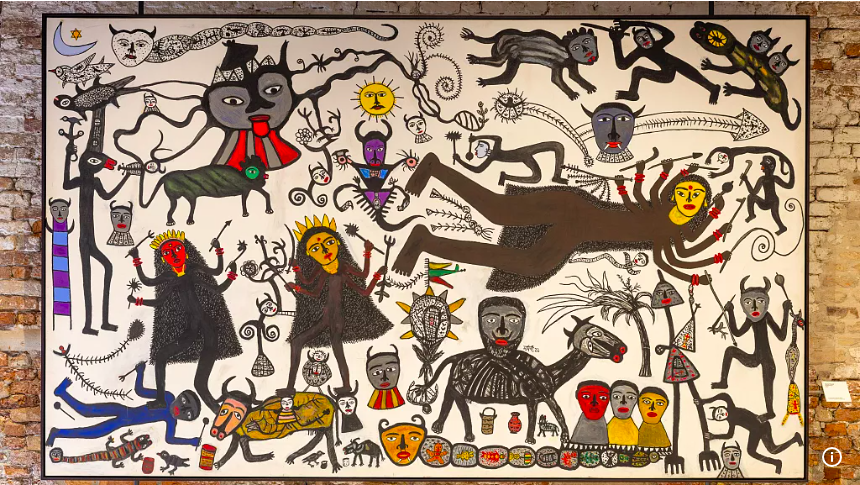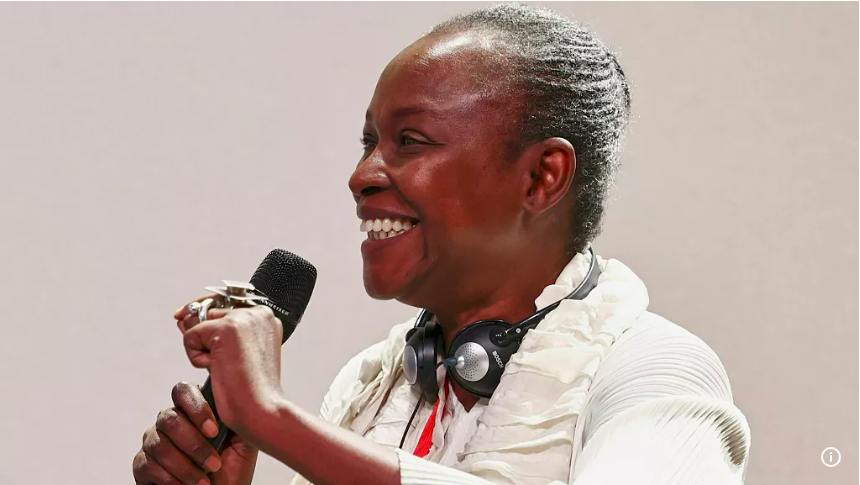Trailblazing Curator Koyo Kouoh Dies at 58: First African Woman to Lead Venice Art Biennale

Remembering Koyo Kouoh: Trailblazing Curator and Visionary Voice in Contemporary Art
The world of contemporary art is mourning the loss of one of its most transformative figures. Koyo Kouoh, the Swiss-Cameroonian curator and executive director of the Zeitz Museum of Contemporary Art Africa (Zeitz MOCAA) in Cape Town, has died at the age of 58. Kouoh's untimely passing marks a significant loss not only for African art but also for the global art community, which she deeply impacted through her passionate advocacy, scholarly brilliance, and commitment to decolonizing art narratives.
Her death was announced on Saturday through an Instagram post by Zeitz MOCAA, where she had served as chief curator since 2019. No cause of death was disclosed, but the shockwaves were immediate. Tributes poured in from across the world—from international institutions to artists, curators, and heads of state—reflecting the breadth of her influence.
Kouoh made history in December 2024 when she was appointed as the curator of the 2026 Venice Art Biennale, becoming the first African woman ever selected to lead the prestigious event. The Biennale described itself as “deeply saddened and dismayed” by her death, emphasising her “passion, intellectual rigor, and vision” in preparing the upcoming edition. The unveiling of the exhibition’s theme and title had been scheduled for May 20 in Venice, a moment many in the art world had eagerly anticipated.
Born in Douala, Cameroon, in 1967 and later holding Swiss nationality, Kouoh's career was a testament to a life spent at the intersection of cultures, continents, and histories. Her work was driven by a Pan-African ethos and a deep commitment to showcasing the diversity and complexity of African art. She founded RAW Material Company in Dakar, Senegal, in 2008, a centre for art, knowledge, and society that quickly became a hub for critical thought and artistic innovation in West Africa.

Her legacy is inseparable from her advocacy for African and diasporic artists, particularly Black women whose contributions have long been marginalised in dominant art narratives. One of her most acclaimed projects was the groundbreaking 2022 exhibition When We See Us: A Century of Black Figuration in Painting, which opened at Zeitz MOCAA. The exhibition explored how Black identity has been portrayed through painting over the past 100 years, tracing its evolution through various political, cultural, and social lenses. The show’s title, inspired by Ava DuVernay’s 2019 Netflix series When They See Us, was a poignant nod to the ways Black people are seen—or not seen—by society.
Through projects like this, Kouoh cemented her reputation as not just a curator, but a cultural activist. She did not simply select artworks; she told stories that rewrote history, challenged colonial legacies, and opened doors for new artistic expressions. She was a fierce advocate for systemic change within museums and curatorial practices, consistently calling for inclusion and equity.
Italy’s Premier Giorgia Meloni expressed “deepest condolences” upon hearing of Kouoh’s passing, noting the “void in the world of contemporary art” that her death leaves behind. The Venice Biennale echoed this sentiment, highlighting how Kouoh’s death would be felt far beyond the art world. “Her passing leaves an immense void in the world of contemporary art and in the international community of artists, curators, and scholars who had the privilege of knowing and admiring her extraordinary human and intellectual commitment,” it said in a statement.
Though her career was filled with accolades and prestigious appointments, Kouoh never lost sight of her roots or her mission. Whether in Dakar, Cape Town, Venice, or beyond, she championed narratives that had long been pushed to the periphery and helped centre African voices in global art discourse.
Her death comes at a time when the art world was finally beginning to reckon with the systemic inequalities that Kouoh had spent decades challenging. In her absence, the work she began will undoubtedly continue, carried forward by a new generation of curators and artists inspired by her courage, vision, and tenacity.
Koyo Kouoh’s legacy is not only in the exhibitions she curated or the institutions she led, but in the conversations she ignited and the minds she opened. As the art world grieves her loss, it also celebrates a life lived in defiance of boundaries—national, racial, artistic—and in unwavering service to truth, beauty, and justice.
May her memory remain a beacon for those who continue to challenge, reimagine, and expand the world of art.
Conclusion
Koyo Kouoh was more than a curator—she was a visionary who redefined the landscape of contemporary art through her unwavering commitment to representation, equity, and truth. Her sudden passing is a profound loss, but her influence will resonate for generations. From Dakar to Cape Town to Venice, Kouoh built bridges between continents, cultures, and communities, always centring African voices and perspectives. As the art world mourns her departure, it must also honour her legacy by continuing the work she so boldly championed: creating space for new narratives, challenging old systems, and recognising the power of art to reshape how we see the world—and each other.
- Art
- Causes
- Crafts
- Dance
- Drinks
- Film
- Fitness
- Food
- Juegos
- Gardening
- Health
- Home
- Literature
- Music
- Networking
- Other
- Party
- Religion
- Shopping
- Sports
- Theater
- Wellness


